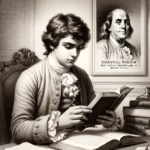
Most Influential Names in Human History A Legacy Guide
Throughout history, some people have made a huge impact on the world. They shaped civilizations and inspired future generations. These best names in history come from many areas, like religion, philosophy, politics, and science. Their legacies keep inspiring others to strive for greatness.
These names show how much these figures changed society. From ancient leaders like Alexander the Great to modern icons like Martin Luther King Jr., they stand for leadership, innovation, and change. Their influence is still felt today, shaping our world.
Exploring these names, we see how they’ve changed our view of the world. They challenged old ways and opened doors to progress. Their stories remind us of the power of one person to make a big difference.
Key Takeaways
- Best Names in History, Influential figures span various fields and eras
- Historical name popularity often reflects societal impact
- Best Names in History inspire generations long after their time
- Individual actions can lead to significant global changes
- Legacies of influential figures continue to shape our world
- Understanding these names provides insights into human history
Religious Leaders Who Shaped Civilization
History is filled with legendary names that guided us spiritually. These iconic figures have left deep marks on our world. They shaped our beliefs and values, which still influence us today.
Jesus Christ: The Foundation of Christianity
Jesus Christ is a name that stands out in history. His teachings of love and forgiveness are at the heart of Christianity. His life has touched more than just religion, affecting Western culture, laws, and ethics.
Buddha: The Path to Enlightenment
Siddhartha Gautama, known as Buddha, started a philosophy followed by millions. His teachings on mindfulness and the Four Noble Truths guide us to inner peace. Buddhism has spread across continents, influencing Eastern thought and gaining followers in the West.
Confucius: Architect of Eastern Philosophy
Confucius is a name linked with wisdom. He created a system of thought that has guided Chinese society for over two millennia. His teachings on morality, social relationships, and justice continue to shape East Asian cultures.
Moses – “Drawn from the water”
A prophet who led the Israelites out of Egypt and received the Ten Commandments, shaping Judeo-Christian ethics.Muhammad – “Praiseworthy”
The founder of Islam, whose revelations formed the Quran, guiding billions worldwide with principles of faith and justice.Zoroaster – “Golden star”
Ancient prophet and founder of Zoroastrianism, whose teachings on good and evil influenced many later religions.Laozi – “Old Master”
The founder of Taoism, emphasizing harmony with nature and the Tao, or “the Way.”Krishna – “Dark, divine one”
A central figure in Hinduism, known as a deity, philosopher, and the narrator of the Bhagavad Gita.Abraham – “Father of multitudes”
The patriarch of Judaism, Christianity, and Islam, symbolizing faith and covenant.Dalai – “Ocean” (Tibetan origin)
Referring to the Dalai Lama, the spiritual leader of Tibetan Buddhism who promotes compassion and peace.Guru Nanak – “Leader, teacher”
The founder of Sikhism, whose teachings emphasized equality, humility, and devotion to God.Mencius – “Second Sage”
A follower of Confucius, known for his teachings on human nature and morality.Paul – “Small, humble”
An apostle of Christianity who spread its teachings across the Roman Empire and authored several New Testament letters.John – “God is gracious”
John the Baptist, a key figure in Christianity, known for baptizing Jesus and preparing the way for his ministry.Vardhamana – “One who grows”
Also known as Mahavira, the 24th Tirthankara of Jainism, who emphasized non-violence and asceticism.Mary – “Beloved”
Revered in Christianity and Islam as the mother of Jesus, symbolizing purity and devotion.Amaterasu – “Shining over heaven”
The sun goddess in Shintoism, a central figure in Japanese spirituality and culture.Suleiman – “Man of peace”
Known as Solomon in Christianity and Islam, celebrated for his wisdom and justice as a king and prophet.Francis – “Free man”
Inspired by Saint Francis of Assisi, who founded the Franciscan Order and emphasized simplicity and care for creation.Theresa – “Harvester”
Saint Teresa of Ávila, a mystic and reformer of the Carmelite Order, symbolizing devotion and spiritual discipline.Aquinas – “Belonging to Aquino”
Referring to Thomas Aquinas, a philosopher and theologian who shaped Catholic doctrine.Ezra – “Help”
A Jewish scribe and priest who led reforms and helped compile the Hebrew Bible.Hillel – “Greatly praised”
A Jewish sage whose teachings on ethics and compassion influenced Talmudic Judaism.Aminah – “Truthful, trustworthy”
The mother of Prophet Muhammad, representing faith and maternal devotion.Augustine – “Great, venerable”
An early Christian theologian whose writings shaped Western Christianity and philosophy.Shankara – “Bringer of bliss”
An Indian philosopher who consolidated Advaita Vedanta, emphasizing non-dualism and unity.Bonaventure – “Good fortune”
A medieval Christian philosopher and theologian known for his synthesis of faith and reason.Rumi – “Roman”
A 13th-century Sufi poet and mystic whose spiritual writings inspire love and unity.Brigid – “Exalted one”
A saint in Christianity and a goddess in Celtic paganism, representing wisdom, healing, and poetry.Erasmus – “Beloved, desired”
A Christian humanist and scholar who advocated for reform and education during the Renaissance.Jerome – “Sacred name”
Known for translating the Bible into Latin (the Vulgate), shaping Christian scripture.Rabia – “Springtime”
A Sufi saint who taught love and devotion to God, emphasizing a direct spiritual connection.Padmasambhava – “Lotus-born”
A revered figure in Tibetan Buddhism who introduced and established Vajrayana Buddhism in Tibet.
“By three methods we may learn wisdom: First, by reflection, which is noblest; Second, by imitation, which is easiest; and third by experience, which is the bitterest.” – Confucius
Jesus, Buddha, and Confucius are more than just religious figures. They are legendary thinkers whose ideas have shaped our world. Their legacy continues to inspire and guide people everywhere.
Ancient Rulers and Empire Builders
Classical names remind us of powerful leaders who changed the world. These names are still popular today. They show us the impact of empire builders on history.
Alexander the Great’s Global Legacy
Alexander the Great was born in 356 BC. He built an empire across three continents. His name is linked to conquest and cultural exchange. Alexander’s legacy spread Greek culture and language far and wide, lasting for centuries.
Augustus and the Roman Empire
Augustus, born Gaius Octavius in 63 BC, was Rome’s first emperor. His rule brought peace and stability. Augustus changed Rome from a republic to an empire, starting a long period of Roman power.
Cyrus – “Sun, throne”
Cyrus the Great, founder of the Persian Empire, known for his policies of tolerance and the first human rights charter.Darius – “Kingly, wealthy”
Darius I of Persia, an administrative genius who expanded the empire and established a centralized government.Cleopatra – “Glory of the father”
The last active ruler of the Ptolemaic Kingdom of Egypt, known for her intelligence, political skill, and alliances with Rome.Ashoka – “Without sorrow”
An Indian emperor of the Maurya Dynasty who embraced Buddhism and spread its teachings across Asia.Charlemagne – “Charles the Great”
King of the Franks and Emperor of the Carolingian Empire, he united much of Western Europe during the Middle Ages.Ramses – “Born of Ra”
Ramses II, also known as Ramses the Great, was one of Egypt’s most powerful pharaohs, famed for his military campaigns and monumental architecture.Zenobia – “Life of Zeus”
Queen of the Palmyrene Empire, who led a famous rebellion against the Roman Empire and expanded her territory in the Middle East.Sargon – “True king”
Sargon of Akkad, founder of the Akkadian Empire, is considered one of the world’s first empire builders.Boudica – “Victory”
A warrior queen of the Iceni tribe who led a major uprising against Roman rule in Britain.Justinian – “Righteous, fair”
Byzantine Emperor Justinian I, who codified Roman law and initiated the construction of the Hagia Sophia.Nefertiti – “The beautiful one has come”
Queen of Egypt, famous for her role in religious revolution and her iconic bust, symbolizing beauty and power.Hammurabi – “The kinsman is a healer”
The sixth king of Babylon, known for the Hammurabi Code, one of the earliest legal systems.Trajan – “To pull, draw”
Roman Emperor Trajan, under whom the empire reached its greatest territorial extent.Saladin – “Righteousness of the faith”
A Kurdish leader who united Muslim forces and recaptured Jerusalem during the Crusades.Hadrian – “Dark-haired”
Roman Emperor Hadrian, known for Hadrian’s Wall and consolidating the empire’s borders.Xerxes – “Ruler over heroes”
Persian king known for his vast army and his role in the Greco-Persian Wars.Hatshepsut – “Foremost of noble women”
One of Egypt’s most successful female pharaohs, known for her prosperous reign and impressive building projects.Alfred – “Elf counsel”
Alfred the Great, King of Wessex, who defended England from Viking invasions and promoted education and law.Catherine – “Pure”
Catherine the Great of Russia, who modernized her country and expanded its borders significantly.Tamerlane – “Iron”
A Turco-Mongol conqueror who founded the Timurid Empire, blending Persian culture with Central Asian traditions.Gilgamesh – “The ancestor is a hero”
A legendary king of Uruk, celebrated in one of the world’s earliest literary works, The Epic of Gilgamesh.Constantine – “Steadfast, constant”
Roman Emperor Constantine the Great, who legalized Christianity and founded Constantinople.Minos – “King”
The mythical king of Crete, associated with the Minoan civilization and the labyrinth of the Minotaur.Genghis – “Universal ruler”
Genghis Khan, the founder of the Mongol Empire, known for his military genius and unifying vast territories.Akbar – “Great”
A Mughal emperor of India, known for his policies of religious tolerance and administrative reforms.Clytemnestra – “Famous power”
A queen of Mycenae in Greek mythology, celebrated for her strength and controversial legacy.Attila – “Little father”
Attila the Hun, a fearsome leader who led invasions into the Roman Empire, earning the title “Scourge of God.”Theodora – “Gift of God”
Empress of the Byzantine Empire, renowned for her influence on Justinian I and her role in social reforms.Leif – “Heir, descendant”
Leif Erikson, a Norse explorer credited with being among the first Europeans to reach North America.Montezuma – “Lord frowns in anger”
An emperor of the Aztec Empire, whose reign saw the first contact with Europeans and the subsequent fall of his empire.
Wu Zetian: China’s Only Female Emperor
Wu Zetian ruled China from 690 to 705 AD. She was the only female emperor in Chinese history. Her rule was marked by smart politics and big reforms, making a lasting mark on China.
Names like Alexander, Augustus, and Wu Zetian are more than just names. They show leadership, ambition, and the power to change the world. Their lasting appeal inspires parents to choose names for their kids, linking today to the rich history of humanity.
Philosophical Giants of History
Philosophy has given us some of the most influential names in history. These thinkers changed how we see the world. They left a lasting impact on our civilization.
Aristotle’s Universal Impact
Aristotle is a giant in philosophy. This Greek thinker worked in logic, ethics, and natural sciences. His ideas are still key in Western thought.
His idea of The Golden Mean, which promotes moderation, is still important today.
The Enduring Wisdom of Ancient Philosophers
Ancient Greece was home to many influential thinkers. Socrates, known for his questioning, challenged old ways. His student Plato started the Academy, a center for learning.
Plato’s “The Republic” talked about an ideal society ruled by wise leaders. Other greats like Pythagoras and Heraclitus also made big contributions. They set the stage for modern philosophy.
Legacy of Greek Thought in Modern World
Greek philosophy still guides us today. Socrates’ saying, “The unexamined life is not worth living,” encourages us to think deeply. Plato’s ideas on abstract concepts are still debated.
Socrates – “Powerful advisor”
The father of Western philosophy, known for the Socratic method and his emphasis on ethics and self-knowledge.Plato – “Broad, wide”
Founder of the Academy and author of The Republic, where he explored justice and the ideal state.Aristotle – “The best purpose”
A student of Plato, Aristotle developed influential works on ethics, metaphysics, and logic.Pythagoras – “Pythian Apollo + announcement”
Known for his contributions to mathematics, mysticism, and philosophy, including the Pythagorean theorem.Heraclitus – “Glory of Hera”
A Greek philosopher who focused on change, famously stating, “You cannot step into the same river twice.”Zeno – “Gift of Zeus”
Founder of Stoicism, Zeno emphasized living in harmony with nature and controlling emotions through reason.Epicurus – “Helper”
Founder of Epicureanism, a philosophy focused on achieving happiness through simple pleasures and avoiding pain.Diogenes – “Born of Zeus”
A cynic philosopher known for his radical lifestyle and criticism of social conventions.Confucius – “Master Kong”
Chinese philosopher whose teachings on ethics, governance, and relationships form the foundation of Confucianism.Laozi – “Old master”
Author of the Tao Te Ching, Laozi emphasized simplicity, humility, and living in harmony with the Tao.Chuang Tzu (Zhuang Zhou) – “Master Zhuang”
A Taoist philosopher known for his parables, exploring the nature of reality and freedom.Avicenna – “Father of the prince”
A Persian polymath who made major contributions to philosophy, medicine, and science in the Islamic Golden Age.Al-Farabi – “Virtuous city philosopher”
An Islamic philosopher who merged Aristotelian and Neoplatonic thought with Islamic teachings.Thomas Aquinas – “Twin”
A medieval theologian and philosopher who blended Christian doctrine with Aristotelian philosophy.Augustine – “Great, magnificent”
Saint Augustine of Hippo developed Christian theology with his works on sin, grace, and salvation.Rene Descartes – “Born of a cart”
Father of modern philosophy, famous for “Cogito, ergo sum” (“I think, therefore I am”).Baruch Spinoza – “Blessed”
A rationalist philosopher who explored ethics, nature, and the universe as a single substance.Immanuel Kant – “God is with us”
Known for his work on ethics and epistemology, Kant developed the idea of the categorical imperative.Jean-Jacques Rousseau – “God is gracious”
A French philosopher whose works on natural rights and the social contract influenced modern democracy.Voltaire – “Pen name meaning ‘determined’”
A writer and philosopher who championed reason, freedom of speech, and separation of church and state.David Hume – “Beloved”
A Scottish philosopher known for his empiricism and skepticism, particularly regarding causality.Georg Wilhelm Friedrich Hegel – “Farmer + will + peace”
A German idealist philosopher who explored the dialectical process of history and reality.Friedrich Nietzsche – “Peaceful ruler”
A German philosopher who challenged traditional values, famously declaring, “God is dead.”Karl Marx – “Free man”
Co-author of The Communist Manifesto, Marx’s philosophy of class struggle shaped modern political thought.John Locke – “Locksmith”
The father of liberalism, Locke’s works on natural rights and government influenced the Enlightenment.Søren Kierkegaard – “Severe churchyard”
A Danish philosopher and theologian who is considered the father of existentialism.Simone de Beauvoir – “Heard of God”
A French existentialist and feminist thinker, author of The Second Sex.Hannah Arendt – “Grace”
A political philosopher known for her work on totalitarianism, human rights, and the nature of power.Bertrand Russell – “Bright raven”
A British philosopher and logician, Russell’s work in analytic philosophy revolutionized modern thought.Albert Camus – “Noble and bright”
A French philosopher and writer, Camus explored the absurdity of life and the search for meaning.
Aristotle’s work on logic and ethics is still crucial in many fields. These giants have given us a wealth of knowledge. Their ideas continue to challenge and inspire us, showing that the best names in history can cross time and culture.
Best Names in History Revolutionary Thinkers
History is full of names that have made a lasting impact. These thinkers broke new ground, challenged the status quo, and changed the world. Their names continue to inspire us today.
Thomas Edison – “Twin”
The prolific inventor known for the phonograph, the light bulb, and over 1,000 patents.Nikola Tesla – “Victory of the people”
Pioneer of alternating current (AC) and wireless communication, a symbol of genius and creativity.Marie Curie – “Of the sea”
The first woman to win a Nobel Prize for her work on radioactivity.Albert Einstein – “Bright one”
Theoretical physicist whose theory of relativity changed our understanding of time and space.Charles Darwin – “Free man”
Father of evolutionary theory and author of On the Origin of Species.Leonardo da Vinci – “Strong as a lion”
A true Renaissance genius, excelling in art, engineering, and invention.Galileo Galilei – “From Galilee”
Astronomer who championed the heliocentric model and advanced modern science.Isaac Newton – “Laughter”
Developer of the laws of motion and gravity, a cornerstone of modern physics.Alexander Fleming – “Defender of men”
Discovered penicillin, revolutionizing medicine and saving countless lives.Ada Lovelace – “Noble”
Known as the first computer programmer, working on Charles Babbage’s Analytical Engine.Aristotle – “The best purpose”
Greek philosopher whose works in ethics, logic, and science laid the foundation of Western thought.Confucius – “Master Kong”
His teachings on morality and governance have shaped Eastern philosophy for centuries.Karl Marx – “Free man”
The revolutionary thinker who co-authored The Communist Manifesto, shaping political theory.Jean-Jacques Rousseau – “God is gracious”
A key figure in the Enlightenment, known for his works on natural rights and freedom.John Locke – “Locksmith”
Philosopher whose ideas on liberty and governance influenced modern democracy.Søren Kierkegaard – “Severe churchyard”
A founder of existentialism, focusing on individuality and faith.Simone de Beauvoir – “Heard of God”
A feminist thinker who challenged traditional gender roles in The Second Sex.Voltaire – “Determined”
French writer and philosopher who championed freedom of speech and religion.Friedrich Nietzsche – “Peaceful ruler”
Influential philosopher who questioned morality and inspired existential thought.Hannah Arendt – “Grace”
Political theorist who explored power, authority, and human rights.Mahatma Gandhi – “Great soul”
Leader of nonviolent resistance, key to India’s independence from British rule.Nelson Mandela – “Son of the counselor”
Anti-apartheid revolutionary and symbol of justice and reconciliation.Che Guevara – “The new man”
A Marxist revolutionary who became a global symbol of rebellion.Martin Luther King Jr. – “Warrior of the people”
Leader of the Civil Rights Movement in the U.S., known for his dream of equality.Susan B. Anthony – “Lily”
A key figure in the women’s suffrage movement in the U.S.Emmeline Pankhurst – “Work”
British activist who fought for women’s voting rights.Thomas Paine – “Twin”
Author of Common Sense, a pamphlet that inspired the American Revolution.Catherine the Great – “Pure”
Russian empress who expanded her empire and reformed its laws and governance.George Washington – “Farmer”
Revolutionary leader and the first President of the United States, known as the “Father of His Country.”Elizabeth I – “My God is an oath”
The Virgin Queen who led England into its Golden Age of exploration and culture
Thomas Edison is a name that comes to mind when we think of science and invention. He holds over 1,000 U.S. patents, making him a symbol of innovation. Nikola Tesla also made a huge impact with his work on electricity. And in computing, Charles Babbage is known as the father of.
In philosophy, names like Aristotle and Confucius stand out. Aristotle wrote over 200 treatises on various subjects. Confucius taught us about personal ethics. Even today, names like Steve Jobs inspire parents to choose strong names for their kids. They believe a name can shape a child’s future.












